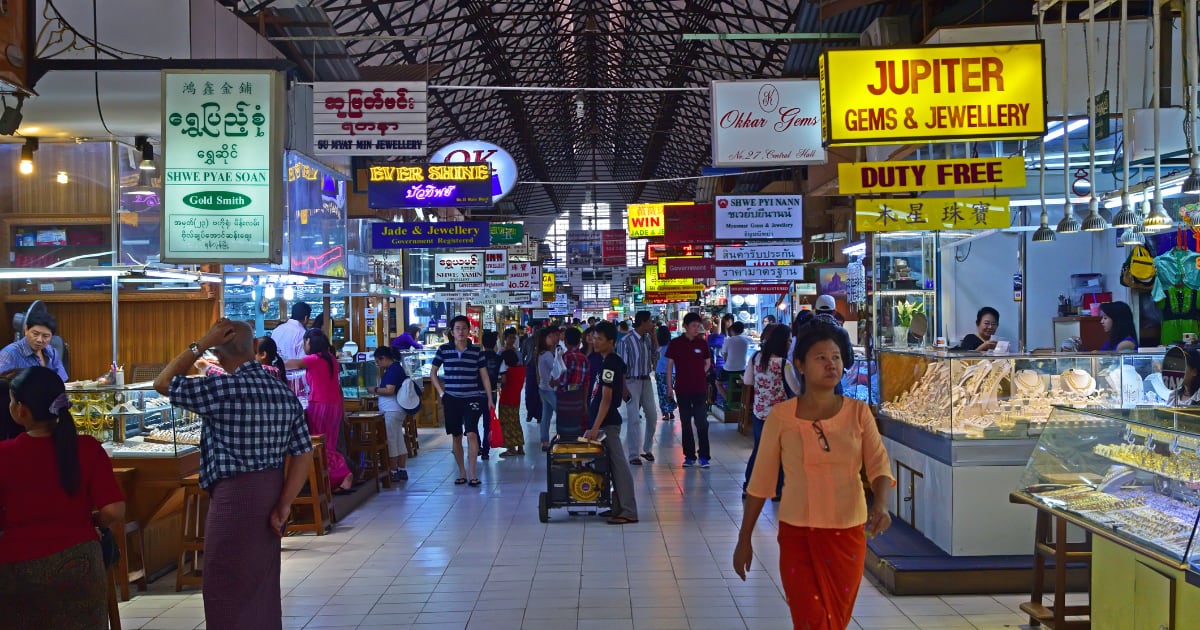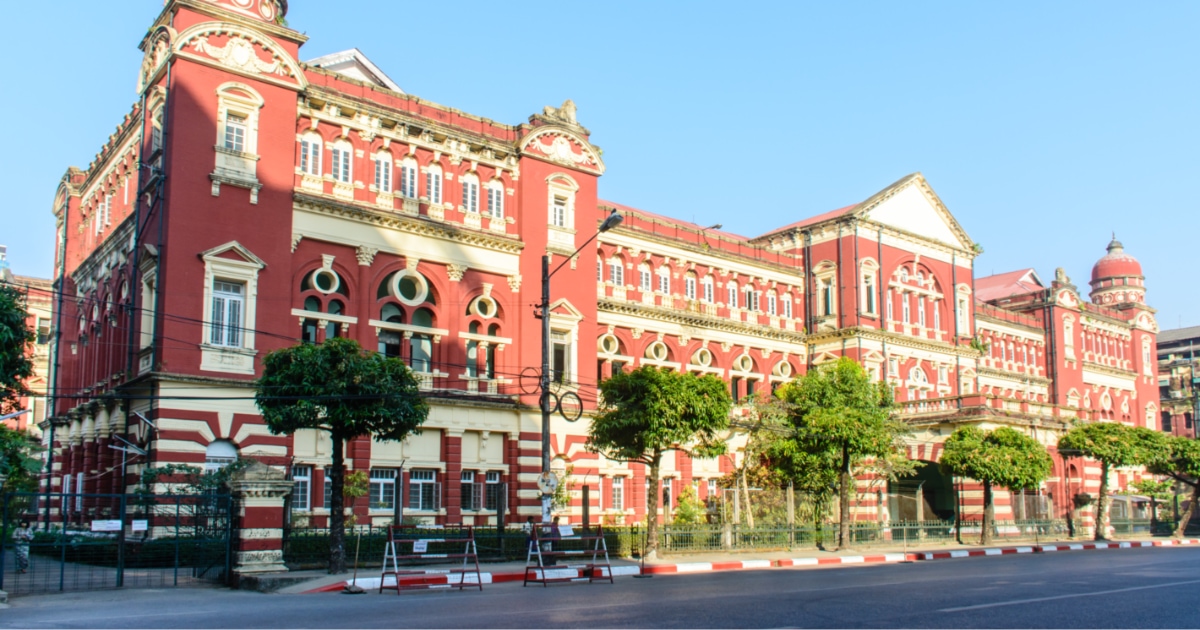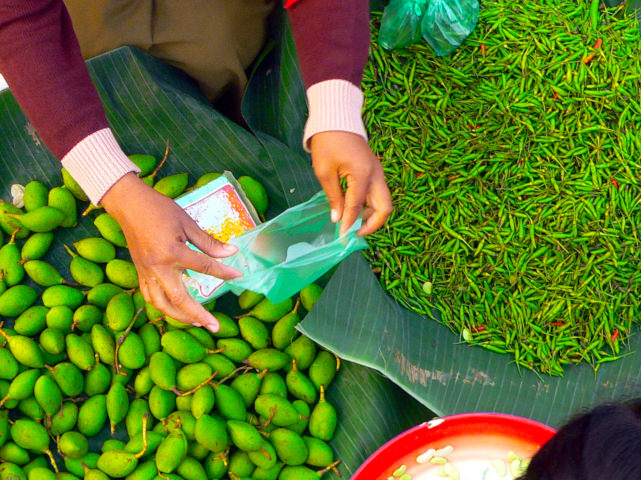Download PDF | Download word version
In February 2020, the Financial Action Task Force (FATF), the intergovernmental Anti-Money Laundering (AML) and Counter-Financing of Terrorism (CFT) policy-making group, and the Asia/Pacific Group on Money Laundering (APG), a FATF-style regional body, added Myanmar to the grey list of jurisdictions being actively monitored. The move indicates that while Myanmar’s regulatory regime has undergone significant AML/CTF reform in recent years, it has not made sufficient progress and is thus again subject to international monitoring. Myanmar was previously on the grey list but was removed in June 2016 due to “significant progress in improving its AML/CFT regime”.[1]
The development has generated concern that investor confidence in Myanmar will be undermined as risk-adverse international banks are likely to reduce their exposure, and the United States may reinstitute financial restrictions on US banks dealing with Myanmar.[2] Various organisations, including the International Monetary Fund (IMF), the UN Office on Drugs and Crime (UNODC) and the Myanmar Centre for Responsible Business (MCRB) had warned of the likelihood that Myanmar would be placed on the grey list.[3] Despite these concerns, Singapore’s sovereign wealth fund, GIC Private Limited, and Norway’s investment fund for developing countries, Norfund, recently acquired stakes of 20% and 10%, respectively, in Yoma Bank for a total of approximately US$89 million.[4]
International AML/CFT obligations
According to the FATF, money laundering is the process by which criminals attempt to disguise and legitimise illicit money. Given the problems of money laundering worldwide, FATF has developed international standards to combat money laundering and terrorist financing.
Myanmar, like other members of the APG, is subject to peer review assessments of its AML/CFT system, which are carried out jointly by the FATF and APG. In September 2018, the FATF/APG Mutual Evaluation (2018 Mutual Evaluation) report on Myanmar rated Myanmar non-compliant for six out of the 40 FATF Recommendations (R): R.7 (targeted financial sanctions related to proliferation); R.14 (money or value transfer services); R.19 (higher-risk countries); R.24 (transparency and beneficial ownership of legal persons); R.25 (transparency and beneficial ownership of legal arrangements); and R.28 (regulation and supervision of Designated Non-Financial Business and Professions (DNFBPs) such as accountants and lawyers). At the same time, Myanmar was rated partially compliant for 17 Recommendations, including R.1 (assessing risk and applying the risk-based approach), R.8 (non-profit organisations), R.10 (customer due diligence), R.12 (politically exposed persons), R.13 (correspondent banking) and R.26 (regulation and supervision of financial institutions).
A non-compliant or partially compliant FATF rating is essentially a fail grade, while a compliant or largely compliant rating is considered a pass grade. Jurisdictions, such as Myanmar, are expected to take active measures to improve their grading.
In August 2019, the APG released its first follow-up report on Myanmar, which showed that it had made some improvement in its AML/CFT system since its 2018 Mutual Evaluation. In particular, R.1 (assessing risk and applying the risk-based approach) was re-rated from partially compliant to largely compliant, while R.19 (higher-risk countries) was re-rated from non-compliant to partially compliant.
Since the 2018 Mutual Evaluation, the Myanmar Cabinet approved the first national money laundering and financing of terrorism risk assessment in 2018. The three major money laundering risks identified in the national risk assessment were the proceeds of tax and excise evasion, environmental crime, and corruption and bribery. Curiously, the risk assessment did not include drug money laundering as among the top three money laundering risks, notwithstanding that this is a key crime in terms of generating domestic proceeds of crime.
In including Myanmar on the watchlist in 2020, FATF observed that Myanmar had made some progress since the 2018 Mutual Evaluation, such as a new framework governing the registration of hundi operators. However, insufficient progress was made in other key areas.
Myanmar has developed an action plan with the assistance of FATF and APG to address the most serious deficiencies identified in the 2018 Mutual Evaluation. These include a greater understanding of money laundering risks in key areas, sufficiently resourcing a supervisory body for DNFBPs, ensuring that hundi operators are registered and supervised, a greater dissemination and use of financial intelligence by law enforcement, increased money laundering investigations and prosecutions, improved international cooperation in transnational money laundering cases, a more effective enforcement of freezing and confiscation of criminal assets, and a more effective implementation of targeted financial sanctions particularly relating to proliferation financing.
According to the US State Department’s 2019 International Narcotics Control Strategy Report, Myanmar is the world’s second largest producer of illicit opium and a major manufacturer and exporter of heroin and amphetamines. Further, the UNODC stated in its Myanmar Opium Survey 2019 that Myanmar is the largest opium and heroin supplier in East and Southeast Asia, as well as Australia.
The Myanmar government’s recognition of the country’s exposure to drug trafficking was recognised by the and the director-general of the Ministry of Home Affairs’ Bureau of Special Investigation who stated that 90% of money laundering cases investigated by the bureau are linked to drugs. The bureau undertakes international money-laundering investigations in co-operation with the Central Bank of Myanmar, the Income and Revenue Department, the Department of Agricultural Land Management and Statistics, the Customs Department, the Financial Investigation Police Force, the Anti-Narcotic Task Force and the Anti-Human Trafficking Police Force, which also work closely with their Thai counterparts.[5]
The Myanmar government has employed a variety of methods to combat drug trafficking, including strengthening the police force and increasing drug confiscations. Myanmar President Win Myint has appealed to the Central Committee for Drug Abuse Control to take stronger measures to combat the spread of illicit drugs so as to comply with Myanmar’s international commitment to implement the 1988 UN Narcotics Drug Convention. It is estimated that the total amount of illegal drugs confiscated in 2018-2019 and burned in Yangon, Mandalay and Taunggyi was approximately US$301 million. Certain precursors for the production of drugs, such as heroin and methamphetamine, generally enter Myanmar from China.[6]
It is well recognised that Myanmar faces significant money laundering risks arising largely from illicit drug cultivation and manufacturing which occur in territories controlled by non-state armed groups. According to the 2018 Mutual Evaluation report on Myanmar, other serious predicate crimes that result in illegal proceeds that are laundered include human trafficking, illegal jade extraction, illegal logging, wildlife smuggling and corruption. Myanmar’s risk profile is heightened through various complex contextual issues, including the transnational nature of money laundering, the reliance on informal money transfer systems (e.g. hundi) and the cash-based nature of the economy.
According to the 2018 Mutual Evaluation, although the Myanmar authorities appear to have a reasonable understanding of counter-terrorist financing risks, they fail to demonstrate a credible understanding of money laundering risks. The Central Bank of Myanmar has adopted a risk-based supervisory approach to financial institutions, but it has not ensured that such institutions comply with the AML/CFT laws and policies. For example, many banks do not understand the AML/CFT risks of their customers or products, while most DNFBPs have not taken action to implement the requisite AML/CFT controls. At a governmental level, there has been a failure to improve international co-operation – there is no bilateral mutual legal assistance treaty with the United States – while money laundering enforcement is considered weak and ineffective.
However, authorities in Myanmar believe that they have taken considerable steps to combat money laundering and terrorist financing. On 28 June 2019, Central Team Joint Secretary Police Brigadier General Kyaw Win Thein stated that his team has been closely monitoring money laundering and terrorism funding in Myanmar with the aim of thwarting potential terrorist attacks and combating drug trafficking.[7]
Other AML/CFT measures that Myanmar has taken are considered below. Whether these steps are sufficient will be extremely important for Myanmar, given the power that the United States can exercise through the international financial system. Although in 2003, the US Government identified Myanmar as a jurisdiction of “primary money laundering concern” under the USA Patriot Act, it has not prohibited US financial institutions from having correspondent relationships with Myanmar banks. Fortunately, in October 2016, the US Treasury issued a blanket administrative waiver allowing US institutions to maintain correspondent bank accounts with Myanmar banks under specified conditions.
Anti-Money Laundering and Counter Financing of Terrorism Laws
Myanmar’s AML/CFT laws are complex and are dispersed across a number of different laws, including the Anti-Money Laundering Law (2014), the Anti-Money Laundering Rules (2015), the Countering of the Financing of Terrorism Rules (2015) and the Customer Due Diligence Directive issued by the Central Bank of Myanmar (2019). English translation of these laws is available on the website of the Myanmar Financial Intelligence Unit at https://mfiu.gov.mm/laws-and-regulations.
In 2014, Myanmar’s Anti-Money Laundering Law (AMLL) was enacted, replacing the Control of Money Laundering Law (2002). The Central Control Board on Money Laundering which was formed under the 2002 law, was re-formed under the 2014 law as the Anti-Money Laundering Central Board (AMLCB), comprising 15 persons including the Minister for the Ministry of Home Affairs as chairman. The duties of the AMLCB as set out in the AMLL include: setting AML/CFT policies; formulating and implementing a national AML/CFT strategy; conducting a national risk assessment; monitoring and implementation of national policies and strategies; issuing directives on customer due diligence to be complied with by reporting organisations; co-operating with international and regional organisations as well as state parties of UN conventions and neighbouring states; guiding relevant government departments and organisations; setting our and guiding the AML/CFT awareness policy to public services and non-government organisations; and submitting the report of activities of the AMLCB to the Government.
The AMLCB formed the Financial Intelligence Unit (FIU) under section 9 of the AMLL to receive, request and analyse reports and other information relating to AML/CFT offences and predicate offences. The FIU is also responsible for provide the results of analysis and other relevant information to the relevant responsible person or organisations or internal and external agencies upon request or spontaneously if it suspects that it relates to AML/CFT offences or any predicate offences.[8] Under sections 13 and 14 of the AMLL, the FIU is the Scrutiny Body responsible for scrutinising money laundering, financing of terrorism, money and properties obtained by illegal means, and terrorist property. Pursuant to section 16, the Central Board is the Investigation Body responsible for investigating the FIU’s findings on money laundering.
According to section 3(n) of the AMLL, money laundering means “the commission of any of the following:
- conversion or transfer of money and property, knowing or having reason to know that such money and property are the proceeds of crime, for the purpose of disguising or concealing the illicit origin of the money or property or of assisting, before or after commission of the offence, any person who is involved in the commission of the predicate offence to evade the legal consequences of his or her action under the AMLL;
- concealment or disguise of the true nature, source, location and disposition, movement or ownership of or rights with respect to money and property, knowing or having reason to know that such money and property are the proceeds of crime;
- acquisition, possession or use of money and property, knowing or having reason to know, at the time of receipt, that such money and property are the proceeds of crime;
- participation in, association with, aiding, abetting, facilitating, managing, counselling and being a member of an organised group and commission of an offence by any other means, by action or omission, to commit, attempts to commit or conspiracy to commit any offence contained in paragraphs (i) to (iii) above.
Predicate offences for money laundering are: offences committed by organised criminal groups; offences relating to sexual exploitation; offences relating to infringement of intellectual property rights; offences relating to environmental crimes; offences relating to tax evasion and other tax crimes; offences relating to piracy; offences relating to terrorism; offences relating to insider trading and market manipulation; the commission of any offence punishable with imprisonment for a minimum term of one year; offences prescribed by the Government; or offences relating to participating, abetting, supporting, providing, managing, advising or being a member of an organised criminal group, or other related offences including attempting or conspiring to commit any of the offences above (section 5 of the AMLL).
Reporting organisations are subject to certain preventive obligations under Chapter VIII of the AMLL, while licensed banks are also subject to the Directive on Customer Due Diligence related to the Anti-Money Laundering and Counter Financing of Terrorism issued by the Central Bank of Myanmar in November 2019 (CDD Directive), which replaced the directive issued in October 2015. Under the AMLL, reporting organisations are: banks and financial institutions and DNFBPs. DNFBPs are defined as: casinos; real estate agents; dealers in precious metals and precious stones; lawyers, notaries, accountants or other independent legal professionals carrying out certain transactions, such as buying real estate, managing client’s assets or bank accounts, organising the formation, operation or management of companies or other legal organisations or legal arrangements, or buying and selling of business entities; trust and company service providers who perform certain business functions; acting as a trustee of express trusts; or acting as a nominee shareholder for another person (section 3(w) of the AMLL).
Reporting organisations must comply with a number of obligations, including carrying out money laundering and terrorism financing risk assessments, as well as carrying out customer due diligence to identify and verify the customer’s identity, and to identify and take “reasonable measures” to verify companies’ beneficial owners (sections 18 and 19 of the AMLL). Reporting organisations must also undertake enhanced customer due diligence in respect of higher risk customers, such as politically exposed persons, as well as, according to the Anti-Money Laundering Order issued on 14 November 2019, in respect of business relationships and transactions with natural and legal persons and financial institutions from high-risk and other monitored jurisdictions or called for by the FATF.[9]
Reporting organisations are required to monitor complex, unusual large transactions or unusual patterns of transactions that have no apparent economic or lawful purpose, or any business relationship with a jurisdiction that has inadequate AML/CFT laws and policies (section 20 of the AMLL). In addition, reporting organisations must have appropriate risk management systems under section 22 of the AMLL and maintain records for five years under section 23. Further, reporting organisations must adopt, add and implement internal programs, policies, procedures and controls to combat money laundering and terrorism financing. Other requirements that reporting organisations are subject to include designating a compliance officer at the senior management level, providing continuous training programmes, and establishing an independent audit function to examine compliance with and the effectiveness of the implementation of the organisation’s AML/CFT measures.
The key reporting obligations are found in sections 32 and 34 of the AML and articles 42 to 53 of the CDD Directive. Reporting organisations are required to report to the FIU transfers of money or property equal to or exceeding a threshold cash amount (100 million kyats – equivalent to approximately USD75,000 in local currency, or foreign currency totalling USD10,000, as set out in the Reporting Obligation Guideline issued on 26 November 2019)[10], or where it has reasonable grounds to believe any transaction or attempted transaction is money or property obtained by illegal means or is related to money laundering or financing of terrorism. In addition, banks are required to report to the FIU, cross-border wire or electronic transfer in excess of USD10,000 and domestic wire or electronic transfer in excess of 100 million kyats.
An individual who is convicted of money laundering is punishable with imprisonment for a term of up to ten years or a fine, or both (section 43 of the AMLL). If the offender is a company or organisation, a fine of 500 million kyats may be imposed. Further, a responsible person of a reporting organisation which fails to comply with certain obligations, on conviction, may be punished with imprisonment for a term up to three years and may also be liable to a fine (section 44 of the AMLL). If the offender is a company or organisation, a fine of one hundred million kyats may be imposed.
Directive mandating disclosure of beneficial ownership information
Myanmar’s directive on disclosure of beneficial ownership of legal persons and legal arrangements (BO Directive) came into force on 1 January 2020 and requires all legal persons incorporated in Myanmar (i.e. entities other than natural persons that can establish a permanent customer relationship with a financial institution or otherwise own property, e.g. companies) and legal arrangements (express trusts or other similar legal arrangements) must obtain and hold up-to-date information on their beneficial ownership. Beneficial ownership is defined as the natural person(s) who ultimately own(s) or control(s) a customer or the natural person on whose behalf a transaction is being conducted, and includes those persons who exercise ultimate effective control over a legal person or arrangement. Specifically, a beneficial owner is an individual who: (i) holds, directly or indirectly, more than 5% of the shares or voting rights; (ii) has the right, directly or indirectly, to appoint and remove the majority of the board; or (iii) has the right to, or actually exercises, significant influence or control over the company/entity.
Legal persons and legal arrangements are required to submit beneficial ownership information to DICA and the Internal Revenue Department in a timely manner. They must also co-operate with competent authorities to the fullest extent possible in determining beneficial ownership. In particular, they are required to authorise a natural person resident in Myanmar or a DNFBP accountable to the DICA to provide information and assistance to the authorities. Beneficial ownership information must be kept for at least five years from the date on which the company is dissolved or otherwise ceases to exist (or five years from the date on which the company ceases to be a customer of the professional intermediary or the financial institution). Individuals may apply to DICA to have their information protected if they may be at risk of violence or intimidation as a consequence of being on the register.
There are a number of uncertainties about the BO Directive, such as what does timely submission of information mean. It will be important for DICA to clarify the BO Directive, especially since failure by a legal person or arrangement to comply with the BO Directive is punishable under Chapter XI of the AMLL.
[1] FATF, “Improving Global AML/CFT Compliance: on-going process” (24 June 2016). Available at: https://www.fatf-gafi.org/publications/high-riskandnon-cooperativejurisdictions/documents/fatf-compliance-june-2016.html.
[2] Myanmar Times, “Myanmar risks return to money-laundering watchlist” (2 June 2019). Available at: https://www.mmtimes.com/news/myanmar-risks-return-money-laundering-watchlist.html.
[3] Ibid.
[4] The Straits Times, “GIC buys 20% stake in Myanmar’s Yoma Bank” (30 January 2020). Available at: https://www.straitstimes.com/business/economy/gic-buys-20-stake-in-myanmars-yoma-bank.
[5] Mizzima, “Myanmar struggles to deal with money laundering and related crime” (14 September 2019). Available at: https://www.mmtimes.com/news/myanmar-risks-return-money-laundering-watchlist.html.
[6] Ibid.
[7] Ibid.
[8] Myanmar Financial Intelligence Unit, “About MFIU”. Available at: https://www.mfiu.gov.mm/en.
[9] https://www.president-office.gov.mm/en/?q=briefing-room/orders/2019/11/15/id-9694
[10] FATF and APG, “2018 Mutual Evaluation report on Myanmar” (September 2018). Available at: http://www.fatf-gafi.org/media/fatf/documents/reports/mer-fsrb/APG-Mutual-Evaluation-Report-Myanmar.pdf.
Myanmar returns to FATF watchlist
International AML/CFT obligations
Anti-Money Laundering and Counter Financing of Terrorism Laws
Directive mandating disclosure of beneficial ownership information
Financial Action Task Force
Anti-Money Laundering
Counter-Financing of Terrorism
This newsletter is for information purposes only. Its contents do not constitute legal advice and it should not be regarded as a substitute for detailed advice in individual cases.
Transmission of this information is not intended to create and receipt does not constitute a lawyer-client relationship between Charltons and the user or browser.
Charltons is not responsible for any third party content which can be accessed through the website.
If you do not wish to receive this newsletter please let us know by emailing us at unsubscribe@charltonslaw.com








